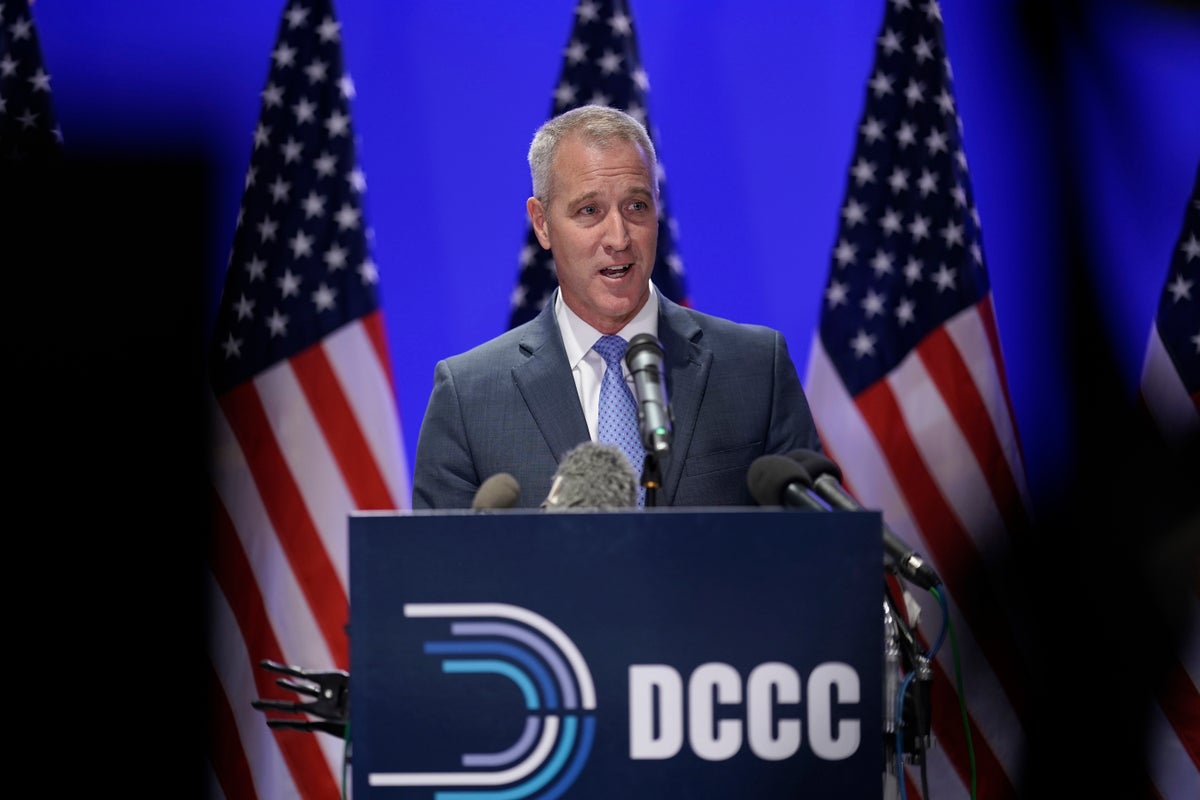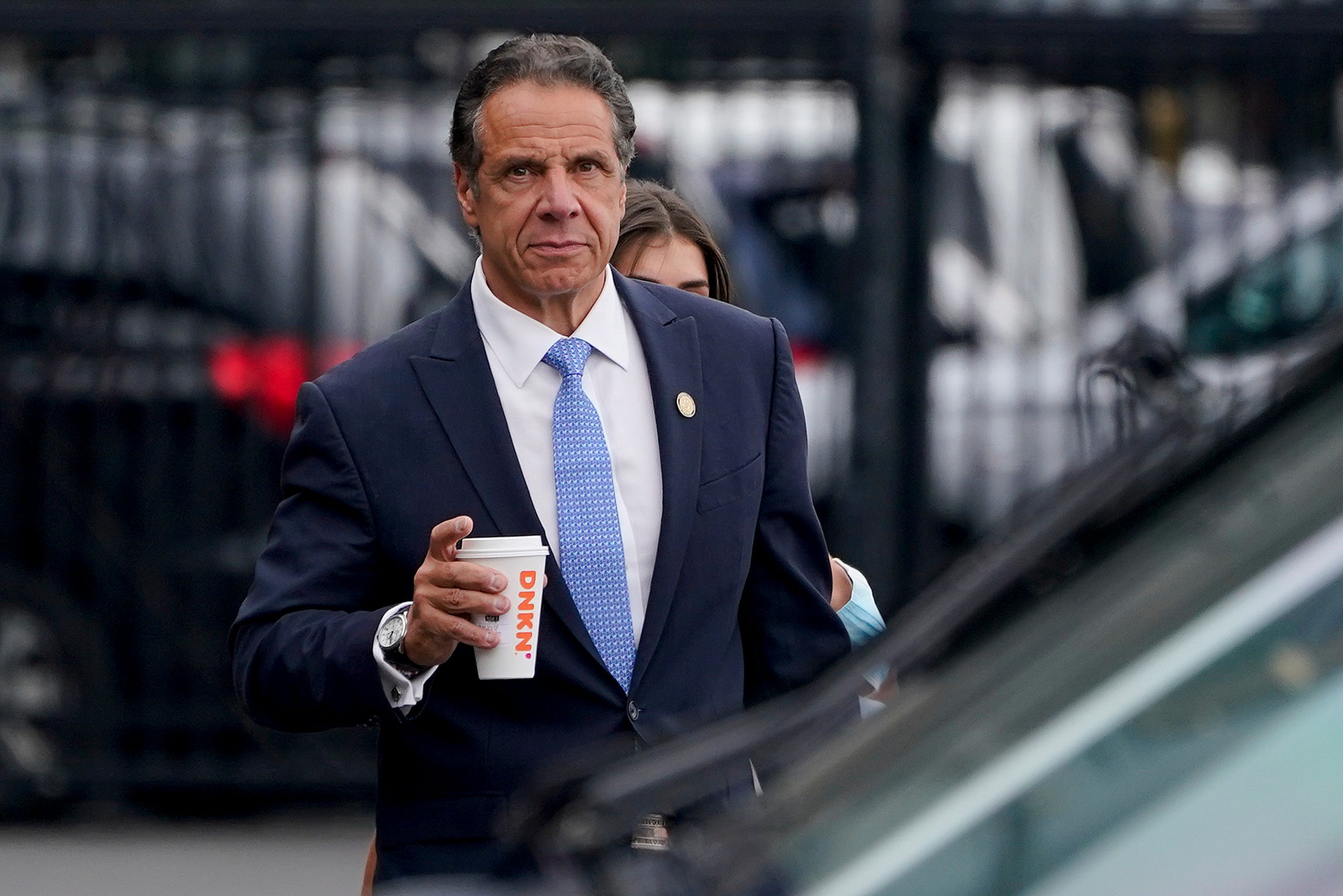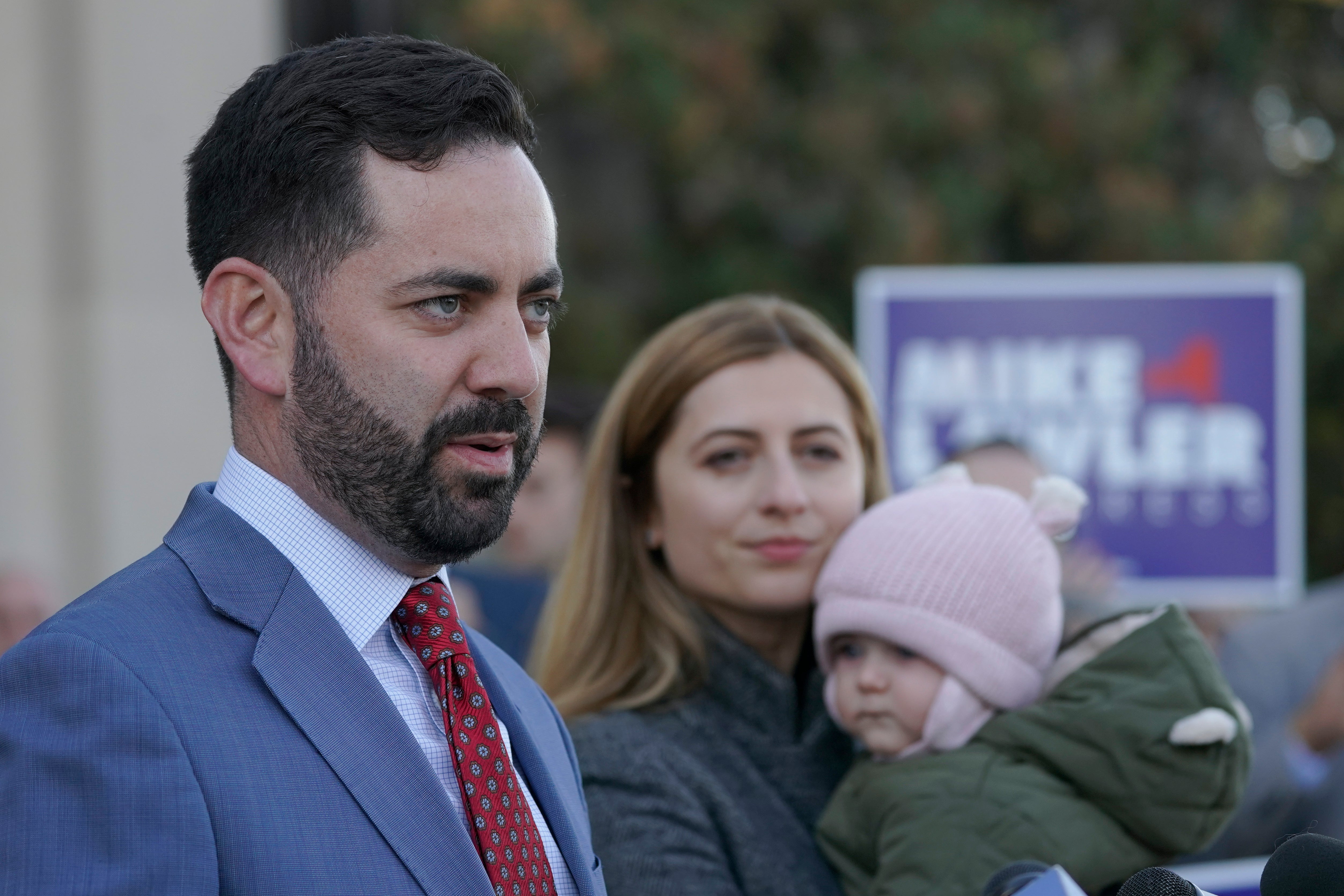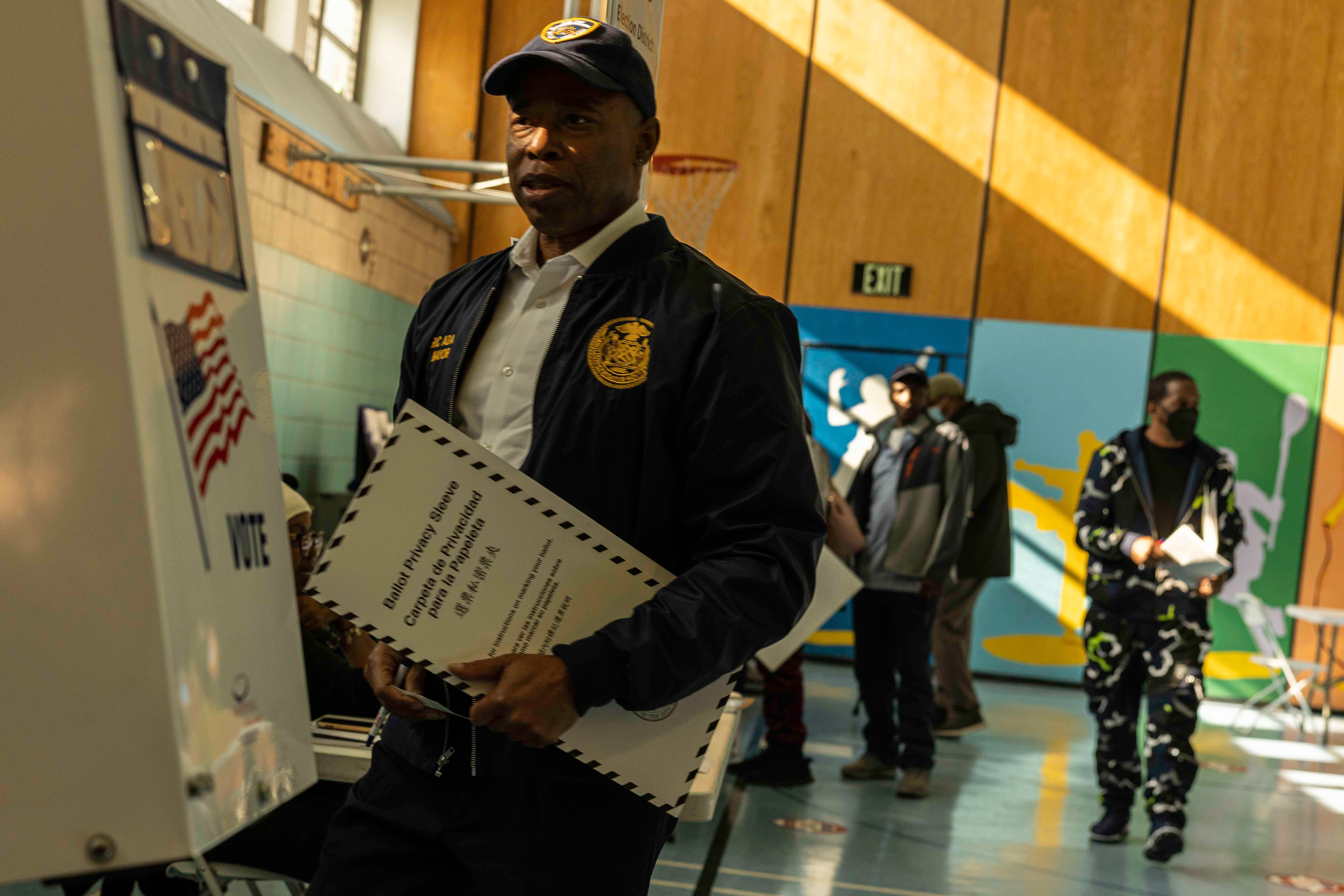
Leading up to Election Day, New York Governor Kathy Hochul campaigned in and around New York City joined by prominent Democratic officials from across the country in buoyant “get out the vote” rallies celebrating the historic, impending election of the state’s first-ever woman governor.
Joe Biden, Kamala Harris, Hillary Clinton and members of Congress all rallied around the governor, who ultimately defeated the Donald Trump-backed Republican candidate Lee Zeldin – by only five percentage points, the closest governor’s election in decades in a state that President Biden won against Trump by nearly 25 points.
Republican candidates in New York massively outperformed expectations in a state where Democratic voters outnumber Republicans two to one. On Long Island, the homebase for New York congressman and GOP candidate for governor Lee Zeldin, Republicans gained four House seats.
Sean Patrick Maloney, the chairman of the Democratic Congressional Campaign Committee, had muscled out a progressive congressman to represent a district that he ultimately lost – to a Republican.
Democratic officials and progressives are demanding a reckoning within the state’s party leadership, including the resignation of the state’s party chair Jay Jacobs, and to rebuild the organisation as it faces generational and political headwinds that critics have long warned that the party cannot withstand as it continues to punch left.
Governor Hochul wants Mr Jacobs to stay on the job, but a wave of progressive New York officials say his departure is long overdue.
New York Congresswoman Alexandria Ocasio-Cortez, who easily defeated her far-right GOP challenger Tina Forte, derided “big money and old-school, calcified machine-style politics that creates a very anemic voting base that is disengaged and disenfranchised.”
Progressive Democratic consultant Camille Rivera told New York’s City & State that the state party “was selfish and reckless – and they paid for it by possibly costing Dems the House.”
It’s not just the alleged failure of leadership that’s frustrating candidates. It’s the absence of one.
“Where the hell was the state party?” New York state Senator Andrew Gounardes asked The City. “When I won in 2018 … there were coordinated field operations, there were joint campaign strategy meetings, there was a plan. …. We were literally left to die on a vine here. And it’s deeply frustrating that our party didn’t even put up a fight.”
Enter Andrew Cuomo
The disgraced former governor of New York left office as the subject of a potential impeachment probe and a damning investigation from the state’s chief prosecutor over allegations of sexual harassment while in office.
But before he left the role he held for nearly 11 years, during which he was repeatedly criticised for his deference to the state’s conservative forces, Andrew Cuomo appointed four conservative judges to 14-year terms on the state’s Court of Appeals, the highest judicial body in the state.
Those judges formed a formidable voting bloc in the most recent term, voting together in 96 of 98 cases – including a challenge to the state’s redistricting plans.
Last year, while Republican state legislators across the US were carving up their political maps to benefit GOP seats in the House, New York state lawmakers also were in position to draft competitive maps in a contentious redistricting cycle almost certain to benefit Republicans.
In the once-a-decade map-making process that determines which areas of each state are represented in the House, New York’s Democratic leadership could offer a political buffer against a wave of GOP-drafted maps and partisan gerrymandering.
But one year later, Republican candidates in New York flipped at least four House seats held by Democratic members, potentially enough to make all the difference as the parties wrestle for control of Congress in midterm elections.

Eight years ago, then-Governor Cuomo helped pass a constitutional amendment to create a bipartisan commission to draw maps in an attempt to prevent future partisan gerrymandering. He said at the time that the plan would “permanently reform the redistricting process in New York to once and for all end self-interested partisan gerrymandering.”
In April, the judges sided with a Republican-backed lawsuit in a 4-3 decision that tossed out the proposed maps, drafted by the state’s Democratic-majority legislature, and reassigned the task of making a new one to a specially appointed role of the court’s choosing.
Judges insisted that those maps be redrawn within the year, transforming the state into an unlikely battlefield for control of the House in 2022.
“What we’re seeing now is Cuomo’s fingerprints,” Sochie Nnaemeka, director of the progressive New York Working Families Party, told Slate. “The redistricting process was Cuomo’s design. The court appointees that overturned the Democratic redistricting plan were Cuomo’s appointees.”
Congresswoman Ocasio-Cortez told The New York Times, however, that “it’s not really about placing blame on him, but examining what the New York State Democratic Party looks like.”
“It is not a small ‘D’ democratic structure,” she said. “As a consequence, we do not have the rich democratic culture and organizing that should be happening year-round, from the way that we select town councils and mayorships across the state of New York. The absence of that results in a lot of what we saw.”
Enter Sean Patrick Maloney
Instead of running in a district he represented for five terms, the Democratic congressman and chair of the chair of the Democratic Congressional Campaign Committee chose to run for re-election in an entirely different one.
Sean Patrick Maloney ran in the 17th Congressional District, which is currently represented by progressive Democratic congressman Mondaire Jones, one of the first gay Black men in Congress.
Roughly two-thirds of the district was new to Mr Maloney, and his abrupt decision reportedly was never discussed with Democratic officials, ultimately forcing Mr Jones to run elsewhere, while Mr Maloney himself warned that the GOP-leaning map signalled an “extinction-level event” for New York Democrats.
Mr Jones, running in the 10th District, lost a primary to the incumbent Democratic congressman Dan Goldman.
And on Election Day, Mr Maloney – who has been in the House for a decade – lost to Republican Mike Lawler.
The district will be represented by a Republican for the first time in nearly 40 years, and Mr Maloney became te first party chair to lose their seat in 30 years.

Meanwhile, the new maps forced House Judiciary Chair Jerry Nadler and Oversight Chair Carolyn Maloney to compete against one another for the same district (which Mr Nadler won). Congresswoman Kathleen Rice retired rather than compete in a newly redrawn district. Congressman Tom Suozzi left his seat to run for governor. And Congressman Antonio Delgado joined the Hochul campaign as her running mate, leaving a competitive district wide open.
Mr Jones had a one-word response to Tuesday’s debacle: “Yikes.”
Enter New York City Mayor Eric Adams
“Crime” dominated right-wing media, GOP ads and debate stages leading up to Election Day, while Republican candidates across the US hammered Democrats on “defund the police” attacks, going so far as to label some candidates as “pro-crime.”
Critics have argued that Democratic campaigns failed to offer a meaningful response, and instead – because polls ranked “crime” as a top-tier issue – they relied on legitimising Republican messaging designed to exploit voter fears.
“This overreliance and insistence on leaning into Republican narratives on crime and safety hurt Democrats in the state of New York,” Ms Ocasio-Cortez told The New York Times. “Instead of ignoring or even pivoting and commanding the narrative on crime and public safety, a lot of Democrats leaned into Lee Zeldin’s approach.”
More Americans today believe that crime is increasing in their areas than at any point over the last five decades, according to polling from Gallup.
That October survey found that 56 per cent of respondents believe crime is up, while 78 per cent believe there is more crime in the country overall. Results note that “perceptions of national crime trends are also influenced by the match between a person’s own party identification and the party of the president”.
While Governor Hochul characterised the 2022 race as a referendum against the former president’s agenda and right-wing extremism, Mr Zeldin accused the state’s Democratic leadership of failing to combat violent crime and keep New Yorkers safe.
His campaign depicted New York City as lawless and crime-infested, blamed recent bail reform laws on recent crimes, and aired a violent campaign ad telling voters to cast their ballots “like their lives depended on it”.
He pledged to end cashless bail, a policy set up to reduce the number of people incarcerated before trial on misdemeanours and nonviolent offences, which GOP campaigns have repeatedly tried to tie to crime trends. New York’s Division of Criminal Justice Services, however, has reported that the re-arrest rate is “nearly identical” since the reforms were implemented in 2020.

Criminologists have not made any connections between crime and progressive prosecutors that Mr Zeldin and other GOP candidates have attacked, but his messaging on both bail reform and violent crime echoed reactionary agendas across the US.
It’s also a message echoed by New York City’s mayor Eric Adams, who has also criticised bail reform laws. Democrats have warned that the mayor has played into right-wing narratives, rather than address them, in ways that could hurt Democratic candidates.
Congressman Mondaire Jones told CNN that concern among voters on crime is “real” and “acute,” but, after 2022 elections, “I hope people have an honest conversation about how Democrats like Mr Adams have validated a hysteria over crime that is uninformed and that has been debunked.”







